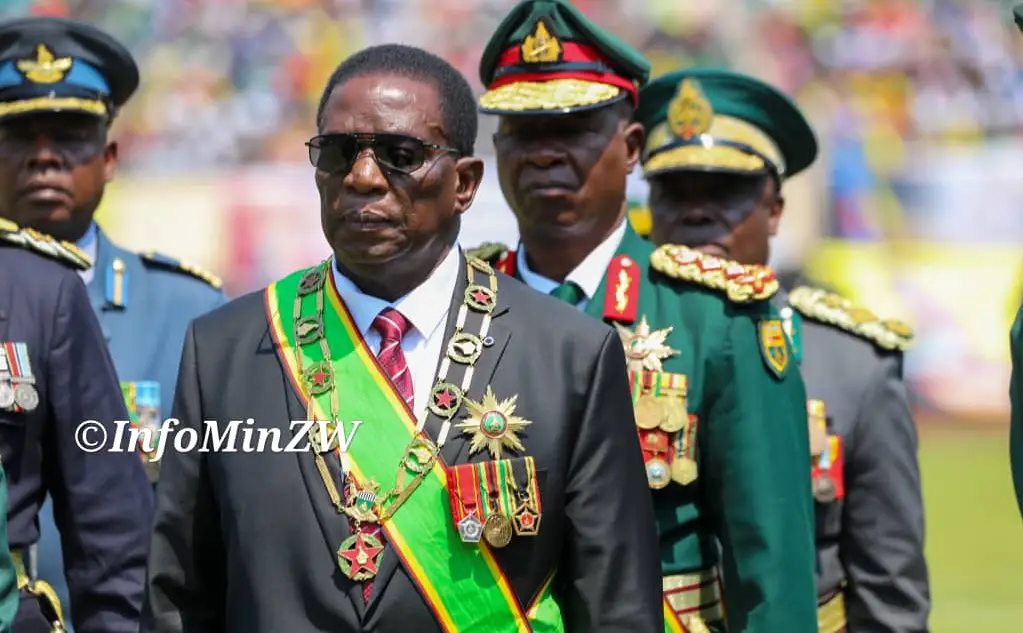“He said to me what happened at the ZANU PF Congress in 1984 that was manipulated by Mnangagwa is what leads us to where we are now. The Politburo was not supposed to be appointed by Mugabe. It should have been elected by the Central Committee. But at the Congress Mugabe said he wanted to change the constitution so he could appoint. The Central Committee did not like this. Then Mnangagwa said let us go and sleep over Mugabe’s proposal and tomorrow morning, it will be the first item on the agenda. That night Mnangagwa went door to door telling Central Committee members that tomorrow you are going to vote yes to what Mugabe wants otherwise there will be severe consequences for you. By 7 a.m. members had already begun to gather and they voted yes by show of hands. Tungamirai believed that was the beginning of the end for the real ZANU PF.” Page 240.
“Solomon had grown uneasy with Mnangagwa’s political proximity to Mugabe by the mid-1980s and this unease increased in the 1990s as his own proximity to Mugabe declined even further. As minister of state in the prime minister’s office (1980 – 7), Mnangagwa was Mugabe’s point man on national security issues and various tasks for most of the 1980s. Solomon had other reasons, in addition to business rivalry, for opposing Mnangagwa. ‘The general felt after a hard person like Mugabe, the country needed somebody different. The general did not trust Mnangagwa with power. The general felt he [Mnangagwa] wanted power too much, somebody like that would be a problem.” Pages 240 – 41.
“From the 1980s, ZANU PF steadily made a range of local business investments, with a view to generating funds for party activities and to make the party financially independent. Mugabe gave Mnangagwa overall charge of these party-business ventures. Mnangagwa collaborated managerially with two British business people of Indian extraction, the Joshi brothers Jayant and Manharlal, along with Dipak Pandya. Jayant had a long relationship with ZANU PF, having allegedly sponsored some of the party’s UK-based members during the 1970s liberation struggle. Solomon detected unusual business practices by Mnangagwa and the Joshi brothers, so he incited clamour within ZANU PF for an in-house investigation into the state of the party’s companies and finances, resulting in a committee being established in 2004 to carry out investigations.
David Karimanzira chaired the investigation committee, comprised of Solomon, Simbarashe Makoni, Thokozile Mathuthu’s and Obert Mpofu. The committee uncovered fraud and mismanagement of ZANU PF businesses. Fearing arrest, the Joshi brothers fled Zimbabwe in dramatic circumstances, with Mnangagwa personally assisting their escape. Mujuru was angry. He wanted to bring down Mnangagwa. Mnangagwa was interviewed by a committee that Mujuru was in and Mujuru came from that interview and said to me, ‘Nda bata matshende ake manje [I have his testicles in my vice-grip]. Mnangagwa has nothing to say.’ They prepared a report but it went nowhere. What Mujuru later realised was that the looting had been happening with Mugabe’s full knowledge.” Page 242.
“Zvinavashe superintended the DRC operations but Mugabe sent Mnangagwa on various classified missions to the DRC on his behalf. Mnangagwa and Zvinavashe were both named by a United Nations Panel of Experts, on the Illegal Exploitation of Natural Resources and Other Forms of Wealth of the DRC, as engaged in the looting of Congolese natural resources.” Page 249. “After the publication of Tekere’s autobiography, a series of meetings by former members of the ZANLA general staff resolved that leadership change in ZANU PF was necessary for Zimbabwe’s economic recovery and for the party’s presidential candidate to stand a chance of triumphing in the 2008 presidential election.
Some representatives of the former ZANLA general staff asked Solomon to verbally communicate their resolution to Mugabe. Mugabe flatly refused to meet with Solomon, having been tipped off by Mnangagwa, allegedly, about the general’s intended message to him.” Page 258. “Mugabe promoted Mnangagwa from minister of rural housing and social amenities to the minister of defence for his contribution to Mugabe’s rebound in the June run-off, whilst the ever more political Chiwenga retained his CDF post.
After 2008, Mnangagwa and Chiwenga became leading pillars of support for Mugabe’s presidency. In the power-sharing phase (2009-13), both figures worked mostly in sync towards the progressive development of a state within the state, a deep state, as a means of protecting Mugabe’s presidency and ZANU PF rule from the political threat posed by the MDC in the power-sharing government. The deep state also worked against disloyal internal elements such as Solomon….. The deep state effectively monopolised exploitation of the diamond fields through joint enterprises, such as Canadian Miners, Mbada Mining and Anjin, with external mining consortiums. A River Ranch official explained the deep state’s behaviour in this way:
The guys in defence wanted the diamonds for themselves and the general was fighting Mugabe politically. Mugabe already could not control the general, what more if the general had big money from diamonds now? Mugabe and the guys in defence found each other over the general and diamonds.” Pages 261-63.






